Undergraduate Research Opportunities Program (UROP)


With Term 4 rapidly drawing to a close, in this issue of our newsletter we look ahead to our education and outreach activities in 2022, including Digital Careers and GLOBE program events.
There's information on how to get involved in NASA's Soil Moisture Active Passive Mission and our PULSE@Parkes program's new website.
We have a great Christmas subscription offer for Double Helix magazine, which is sure to keep budding scientists entertained throughout the year.
Finally, best wishes to all our readers for a safe and happy festive season!
New! PULSE@Parkes website
Double Helix magazine subscription offer
Bebras Computational Thinking Challenge: Save the date!
The GLOBE program: Upcoming webinars
NASA's Soil Moisture Active Passive Mission
CyberTaipan Cyber Defence Competition
FEATURE: Academy member shines at Something Digital Festival
National Youth Science Forum
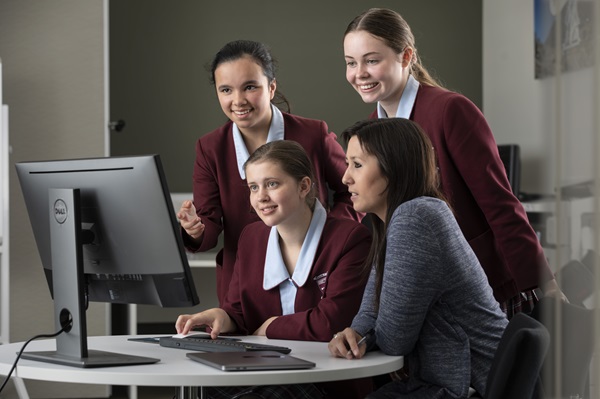
PULSE@Parkes is a free educational program where your high school students use the CSIRO Parkes radio telescope live and remotely to observe pulsars, analyse their data and interact with professional astronomers.
To assist students, teachers and STEM professionals, PULSE@Parkes has recently launched a new website.
You can use the site to find out more about our Parkes radio telescope, book your PULSE@Parkes session and much more.
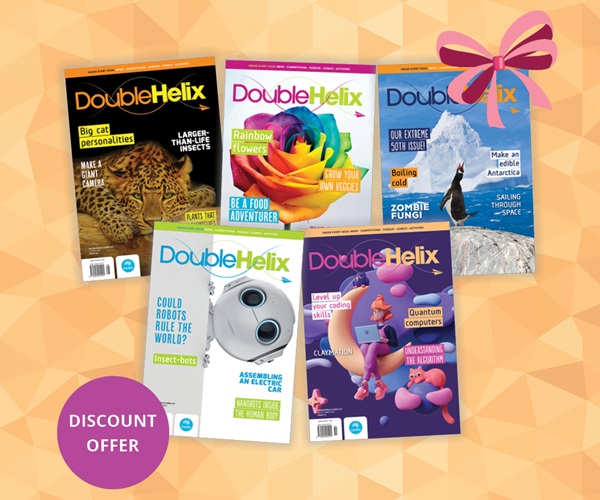
Double Helix magazine is the gift that keeps giving the whole year!
Double Helix is CSIRO's science magazine and is a wonderful STEM inspiration for kids aged 8-13. Perfect reading for young enquiring minds, each magazine is packed with news, features, fun experiments, giveaways and more.
This festive season why not take advantage of our special subscription offer? Use promo code GIFT21 and you’ll score discounts on 12- and 24-month subscriptions, or buy a gift pack!

As you start planning your students' year for 2022, remember to include Round 1 of the Bebras Computational Thinking Challenge, taking place in March 2022.
Bebras is perfect for remote learning, as students can participate either from home, or at school. It's also free to access online and aligned to the Australian Curriculum.
Prepare your students with Bebras 365 challenges, resources and activities.

The Global Learning and Observations to Benefit the Environment (GLOBE) Program is a NASA sponsored science and education program providing students and the community with opportunities to participate in data collection, scientific process, and make meaningful contributions to our understanding of Earth systems and the global environment.
As an international science and education program, GLOBE is dedicated to supplying the STEM professionals of tomorrow with the scientific knowledge necessary to tackle Earth's biggest mysteries.
Through interdisciplinary activities and inquiries into the various Earth spheres, GLOBE gives students a hands-on approach to the scientific method. Our protocols are developed by the scientific community and validated by teachers, so you can be sure our lesson objectives are scientifically verified.
GLOBE also works to build a collaborative, worldwide community of students, teachers, scientists, and citizens to conduct real-world research. Through the data collected by our community members, researchers gain invaluable insight into local environments around the globe and more of the world is able to significantly contribute to scientific discovery.
If you have been contemplating using the GLOBE program or would just like to know more, please register for one of our upcoming webinars:
25th November: Introduction to GLOBE and completing the online assessment
9th December: Introduction to Atmosphere and completing the online assessment
12th January: Introduction to Hydrosphere and completing the online assessment
19th January: Introduction to Biosphere and completing the online activity
16th March: Maths in the classroom using GLOBE's trees activity
CSIRO is proud to deliver The GLOBE Program in Australia, in partnership with the Australian Space Agency (ASA).
CSIRO is proud to deliver the GLOBE Program in Austrathlia in partnership with the Australian Space Agency.
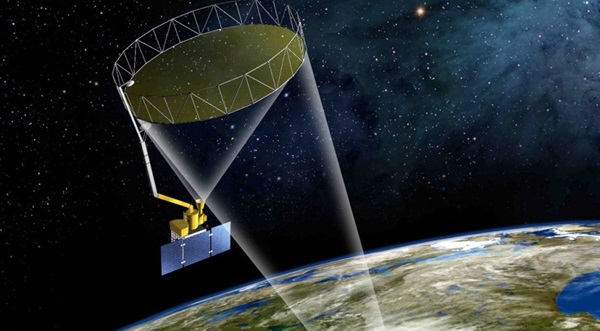
Earth’s climate has changed throughout history. Scientists, research organisations, citizen scientists and others continue to collect essential weather and climate related information. The more information we have, the better our understanding of the global environment and the likely impact climate change may have on these environments.
NASA’s Soil Moisture Active Passive (SMAP) Mission is just one of the ways scientists are collecting important soil moisture data from space. The SMAP Mission should improve our understanding of the processes that link the water, carbon, and energy cycles to improving weather and climate prediction models.
NASA need your help in ground truthing the data collected from space using the measurements your students can make here on Earth!
Join our upcoming CSIRO Education and Outreach webinar on the 2nd December to see how you and your students can help improve our understanding of the Earth systems.
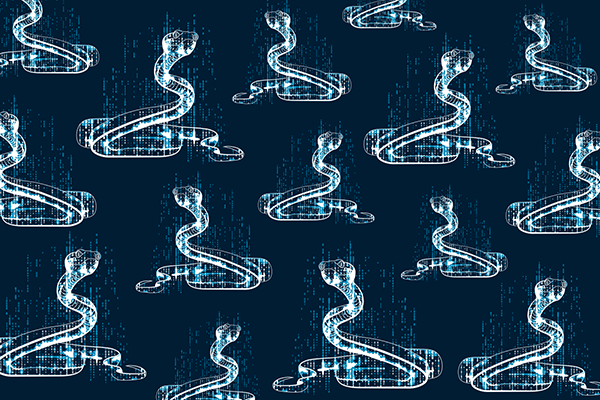
Want to teach your students about cyber security, defensive measures, and securing virtual networks?
CyberTaipan is an Australian Youth Cyber Defence Competition for teams of high school-aged students. Teams are given a set of virtual operating systems, gain points for finding and fixing cyber security vulnerabilities, strengthening systems, and maintaining critical services.
Although this year’s competition has concluded, registrations for team coaches, mentors, and team assistants open early 2022 so be sure to mark this in your calendar.
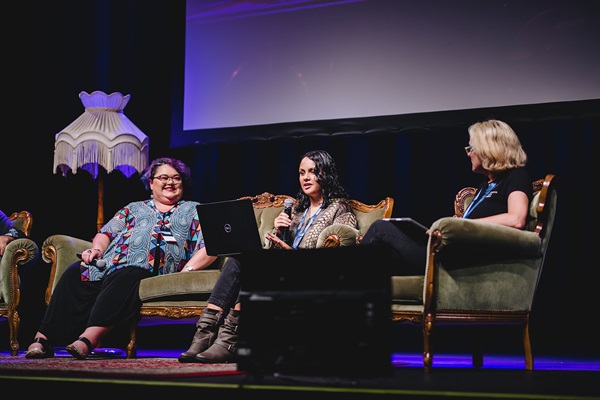
The Young Indigenous Women’s STEM Academy not only supports young Indigenous women to see themselves in STEM careers but also supports young women to be the STEM professional guest speakers at events like the recent Something Digital Festival, held in Brisbane.
Gullara McInnes, a member of the Academy, is studying a Bachelor of Science - Bachelor of Laws, majoring in Earth Science at James Cook University.
At the conference, Gullara joined Cassandra Diamond, A/g Executive Manager for CSIRO Education and Outreach, together with other panel members to discuss how Indigenous perspectives bring together interconnectedness, sustainability, a respect for Country, art and a body of knowledges which we need to learn from and value more.
Gullara spoke about Indigenous technology and applications in science and engineering and shared how she uses Geographic Information System (GIS) technology for land management, including how drones are used to assist map farms during mosaic burns.
The Young Indigenous Women's STEM Academy provides a range of opportunities for young Indigenous women to share their lived experiences, learn from others and position themselves as future STEM professionals.
For assistance with applying for the Academy, please email yiwsa@csiro.au.
Young Indigenous Women's STEM Academy is a 10-year initiative to increase young Indigenous women's participation in STEM. Delivered by CSIRO in partnership with CareerTrackers and the National Indigenous Australians Agency.
© Image courtesy of Something Digital Festival
CSIRO has extended its partnership with the National Youth Science Forum for a further three years, through to 2024.
The National Youth Science Forum (NYSF) is a not-for-profit organisation that runs in-person and digital STEM outreach programs to encourage young people in their passion for science, technology, engineering and mathematics.
Through NYSF, CSIRO provides insights into cutting-edge science, innovation, and scientific careers.
Applications for the 2022 NYSF Year 12 Program are still open! NYSF is running a late round of applications to ensure than any Year 11 student still has the chance to apply. If you know someone who would benefit from the program, encourage them to apply by Sunday 5th December.
